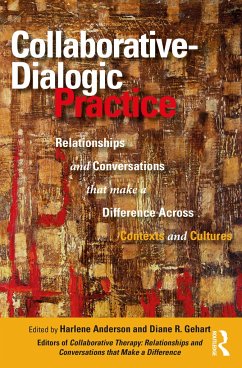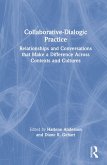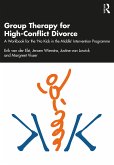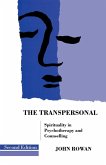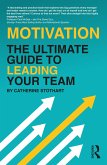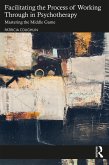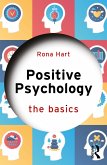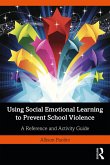Collaborative-Dialogic Practice provides professionals a humanizing approach in facilitating transformative dialogues with their clients, making a difference, and creating surprising possibilities in our fast-changing, diverse, and ever-shrinking world.
Written alongside a collection of international experts, Harlene Anderson and Diane Gehart introduce collaborative-dialogic practice as a way to encourage relationships and conversations that create generative space and promote meaningful changes in clients, even in the most difficult situations. Split into theory and practice, Part 1 introduces collaborative-dialogue and locates it within traditional and contemporary challenges and practices, providing an overview of its conceptual framework. Chapters in Part 2 then detail the practice in a variety of contexts, cultures, and diverse populations, illustrating how readers can translate the concepts to their distinctive practice settings, and their clients' unique situations.
Accessible and applicable, this book will be an essential resource and guide for professionals in diverse contexts, cultures, and disciplines, including counselors, psychotherapists, consultants, leaders, mentors, educators, and trainers.
Written alongside a collection of international experts, Harlene Anderson and Diane Gehart introduce collaborative-dialogic practice as a way to encourage relationships and conversations that create generative space and promote meaningful changes in clients, even in the most difficult situations. Split into theory and practice, Part 1 introduces collaborative-dialogue and locates it within traditional and contemporary challenges and practices, providing an overview of its conceptual framework. Chapters in Part 2 then detail the practice in a variety of contexts, cultures, and diverse populations, illustrating how readers can translate the concepts to their distinctive practice settings, and their clients' unique situations.
Accessible and applicable, this book will be an essential resource and guide for professionals in diverse contexts, cultures, and disciplines, including counselors, psychotherapists, consultants, leaders, mentors, educators, and trainers.
"In this time of social division and injustice, it can be hard to envision a way forward. This collection inspires hope that change and equity are possible. From healthcare and school systems to business and climate activism, each chapter illustrates the transformative potential of dialogue. Readers are invited to use tensions and differences as a resource, to "walk with" into uncertainty through a process in which all voices are heard and something new can emerge."
-Carmen Knudson-Martin, PhD, LMFT; Co-author Socioculturally Attuned Family Therapy: Guidelines for Equitable Theory and Practice
The present work is both a precious and inspiring resource. The world's future will depend on our capacities for dialogue across divides in belief, values, and ways of life. Challenged by increasing social fragmentation and polarization, we also confront our impoverished abilities. The present work points the way forward. It not only demonstrates the potentials for actively creating forms of dialogue, but offers an innovative orientation of broad and significant application. As the contributors to this work richly demonstrate, a collaborative-dialogic orientation bears fruit across multiple contexts - therapy, education, community building, business management, and more. Fascinating as well, such practices prove fertile across multiple cultural settings. This is a truly salutary work.
-Kenneth J. Gergen; Author of Relational Being: Beyond Self and Community
"This is a key text for those using relational approaches to psychotherapy, counseling, social work, health services, management, organization, law and politics. Collaborative-Dialogic Practice (CDP) is gaining traction as professionals realize the limitations of formulaic or method led ways of working with people, organizations and communities. Collaborative Dialogical Practice will be increasingly important in a world becoming less personal and more automated. In professional contexts, people tell us how they appreciate human connection guided by relational ethics and relational etiquette. This book covers all areas of relational practice addressing transcultural issues, power relations, and the philosophy of collaboration and dialogue. This edition contemporizes CDP by exploring how it can work across diverse communities and a range of professional contexts. It is an important, unique and practically useful text for new and experienced professionals by offering accessible essays which both explain and show what CDP looks like and how it can be used."
-Dr Gail Simon, DProf, MA, BA Hons; CQSW, AFT & UKCP reg.;UKCGE Rec. Research Supervisor; Principal Lecturer in Systemic Practice and Programme Director
-Carmen Knudson-Martin, PhD, LMFT; Co-author Socioculturally Attuned Family Therapy: Guidelines for Equitable Theory and Practice
The present work is both a precious and inspiring resource. The world's future will depend on our capacities for dialogue across divides in belief, values, and ways of life. Challenged by increasing social fragmentation and polarization, we also confront our impoverished abilities. The present work points the way forward. It not only demonstrates the potentials for actively creating forms of dialogue, but offers an innovative orientation of broad and significant application. As the contributors to this work richly demonstrate, a collaborative-dialogic orientation bears fruit across multiple contexts - therapy, education, community building, business management, and more. Fascinating as well, such practices prove fertile across multiple cultural settings. This is a truly salutary work.
-Kenneth J. Gergen; Author of Relational Being: Beyond Self and Community
"This is a key text for those using relational approaches to psychotherapy, counseling, social work, health services, management, organization, law and politics. Collaborative-Dialogic Practice (CDP) is gaining traction as professionals realize the limitations of formulaic or method led ways of working with people, organizations and communities. Collaborative Dialogical Practice will be increasingly important in a world becoming less personal and more automated. In professional contexts, people tell us how they appreciate human connection guided by relational ethics and relational etiquette. This book covers all areas of relational practice addressing transcultural issues, power relations, and the philosophy of collaboration and dialogue. This edition contemporizes CDP by exploring how it can work across diverse communities and a range of professional contexts. It is an important, unique and practically useful text for new and experienced professionals by offering accessible essays which both explain and show what CDP looks like and how it can be used."
-Dr Gail Simon, DProf, MA, BA Hons; CQSW, AFT & UKCP reg.;UKCGE Rec. Research Supervisor; Principal Lecturer in Systemic Practice and Programme Director

